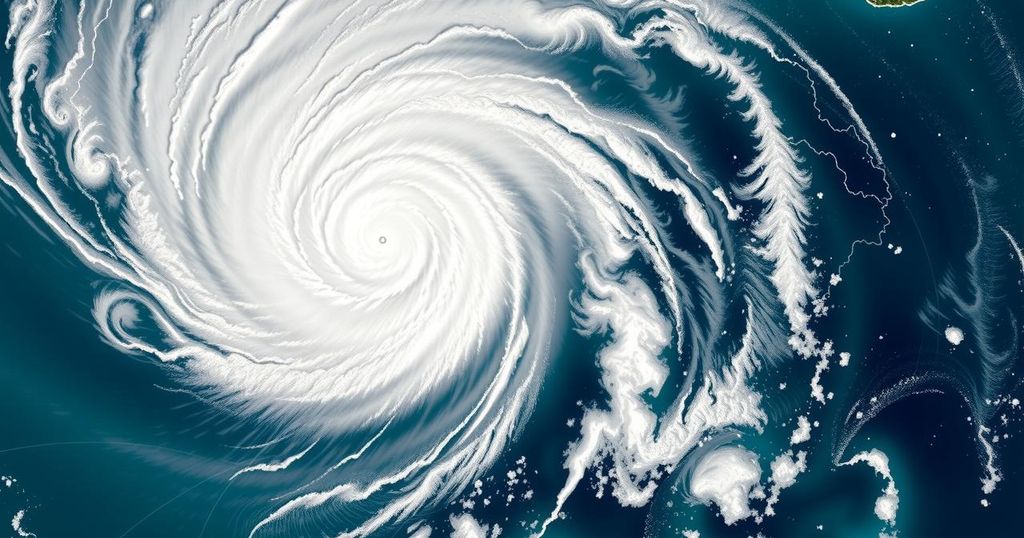Cyclone Chido Threatens Indian Ocean Islands and East Africa
The Indian Ocean islands of Comoros, Madagascar, and Mayotte are preparing for Cyclone Chido, which is expected to hit on Saturday. Authorities have issued red alerts, anticipating severe impacts including high winds and potential flooding, with millions at risk. Emergency responses are being coordinated across the region, emphasizing the severe threats posed by cyclones due to climate change.
The islands of Comoros, Madagascar, and Mayotte in the Indian Ocean are preparing for significant impact from Cyclone Chido, anticipated to reach the region early Saturday. Schools in Comoros have been closed in anticipation of the cyclone’s arrival, while the French territory of Mayotte has been placed on red alert, signifying the highest level of threat. Before striking these islands, the cyclone is projected to pass the northern coast of Madagascar, where alerts and evacuations are already underway in the region of Diana.
With landfall expected on mainland Africa by Sunday, Mozambique has also declared a red alert for its northern provinces of Cabo Delgado and Nampula, estimating that approximately 2.5 million individuals may require rescue efforts. Furthermore, the effects of Cyclone Chido are expected to extend into landlocked Zimbabwe, indicating the broad reach of this intense weather system.
In response to the anticipated storm, Madagascar’s authorities have been proactive, issuing precautionary alerts via mobile phones and radio broadcasts, and mobilizing resources such as food and emergency supply kits to affected areas. Meanwhile, the French government is deploying personnel and equipment to Mayotte to assist with potential rescue operations and disaster management, bolstering local capabilities to respond to the storm’s aftermath.
The cyclone season, spanning from December to March, poses consistently increasing threats in the region due to climate change, with past cyclones like Idai and Freddy inflicting considerable fatalities and damages. As experts predict worsening conditions associated with climate variations, risk management organizations have forewarned about the potential for flooding, landslides, and subsequent health crises such as cholera and dengue fever outbreaks following Chido’s landfall.
The Indian Ocean region experiences a cyclone season from December to March, which has been increasingly severe in recent years due to the effects of climate change. Recent devastating storms, such as Cyclones Idai and Freddy, highlight the vulnerability of areas like Mozambique, Malawi, and Zimbabwe, which face significant threats from intense weather events. Cyclone Chido is the latest in a line of storms that are anticipated to inflict damage and displace populations, demanding urgent preparedness and response measures from local governments and international agencies.
In conclusion, Cyclone Chido poses an imminent threat to the islands of Comoros, Madagascar, and Mayotte, as well as mainland Mozambique and potentially Zimbabwe. The response from authorities indicates a critical need for preparedness in the face of anticipated wind speeds and flooding. Historical context about the increasing severity of cyclones in the region underscores the importance of vigilant disaster management practices to mitigate the risk of loss of life and property.
Original Source: abcnews.go.com




Post Comment